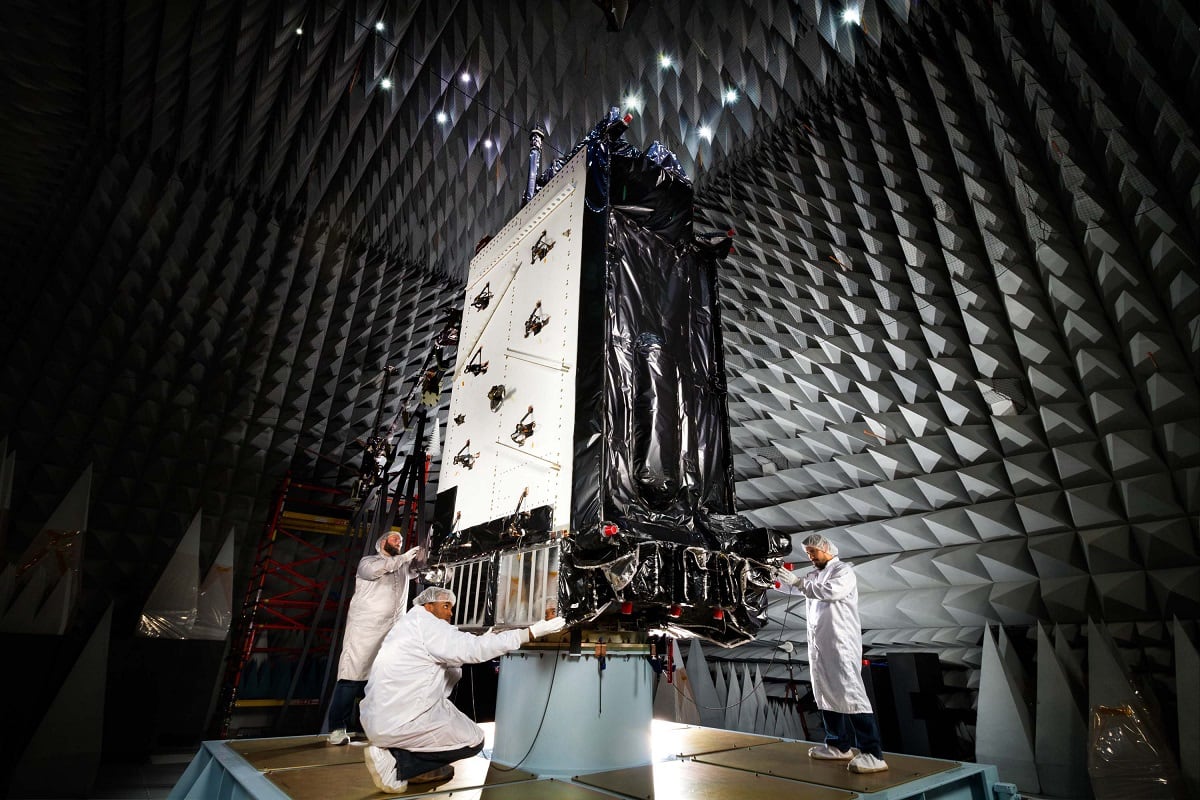A new report suggests a critical piece of the next-generation GPS system that has already been plagued by delays could be pushed back even further, a conclusion disputed by primary contractor Raytheon.
A May 21 Government Accountability Office report concludes that development of the GPS next-generation operational control system (OCX), a $6.2 billion program that is already five years behind schedule, will likely continue to see delays given the Air Force’s penchant for underestimating the amount of time necessary to develop it.
OCX is an essential piece of the ground system infrastructure that will allow the Air Force to fully command and control the next generation of GPS satellites and is part of the ongoing efforts to modernize GPS. Unlike the current system, OCX will provide a cybersecure ground system that can use M-code, a more robust, encrypted GPS signal used by the military, as well as newer civilian signals that can improve accuracy.
Raytheon, the primary contractor for OCX, pushed back against the GAO’s findings in a statement.
“The GAO assessment was never discussed with Raytheon, and their findings are inaccurate,” said Dave Wajsgras, president of Raytheon’s intelligence, information and services business. “From what we can tell, the assessment was likely based upon partial and stale information. We’ve met all of our program milestones and, importantly, held both schedule and cost performance objectives since September 2017. We will deliver the full system by our June 2021 contractual deadline.”
The GAO noted in its report that it interviewed Raytheon officials during its audit, which stretched from November 2017 to May 2019.
OCX is already five years behind schedule and $2.5 billion more expensive than anticipated, according to the GAO. The program has seen its costs grow from an original estimate of $3.7 billion in 2012 to $6.2 billion, a 68 percent increase, triggering a Nunn-McCurdy unit cost breach in 2016. A Nunn-McCurdy unit cost breach requires a program to be shut down unless the Department of Defense intervenes and approves a new, reasonable cost estimate. In response to the breach, the Air Force updated their program schedule in September 2018 and now expect the program to be completed by April 2023.
In 2016, the Department of Defense concluded that the cost overruns were due to an unrealistic schedule, underestimating the cost of cybersecurity measures, a lack of software expertise in the government and poor systems engineering by Raytheon.
“Systems engineering work was part of issue, but it was a complex combination of factors that drove the cost increases,” said Bill Sullivan, vice president of the GPS OCX program in a statement provided to C4ISRNET. “The DoD report is from 2016. Working closely with the USAF, we have made tremendous strides in the last 3 years. Proof of that progress was clearly evident in the 2018 launch of the first GPS III satellite.”
But the GAO suspects that further delays are likely due to what they characterize as an optimistic program schedule with significant development remaining. The report notes that while the speed of software development has improved, most of the reserve time built into the new program schedule has already been eaten up by the roll out of a new development methodology.
The Air Force has acknowledged that delays are also possible during a seven-month testing period following delivery by Raytheon due to “concurrency, test plan uncertainty, and risks of late discovery of problems.”
The GAO suggests that some of those delays could be addressed by an independent assessment of the full OCX program schedule by the end of the year, a step they say is in line with best practices. The report notes, however, that the Department of Defense disagreed with their recommendations.
Even as OCX has floundered in development, GPS modernization has been moving ahead. In December 2018, the first GPS III satellite was launched into orbit. With OCX not expected to be available until 2022 at the earliest, the Air Force has worked to update the current command and control system so that it can control the GPS III satellites, albeit without their more advanced capabilities. The upgrades should allow the current system to use a more limited form of M-code called M-code Early Use.
Raytheon made clear in response to questions the company had no intention of making any adjustments in response to the GAO report.
“We are on a strong path toward full system delivery, and we have no plans to make any changes to program execution based on the GAO report,” Sullivan said.
Nathan Strout covers space, unmanned and intelligence systems for C4ISRNET.








